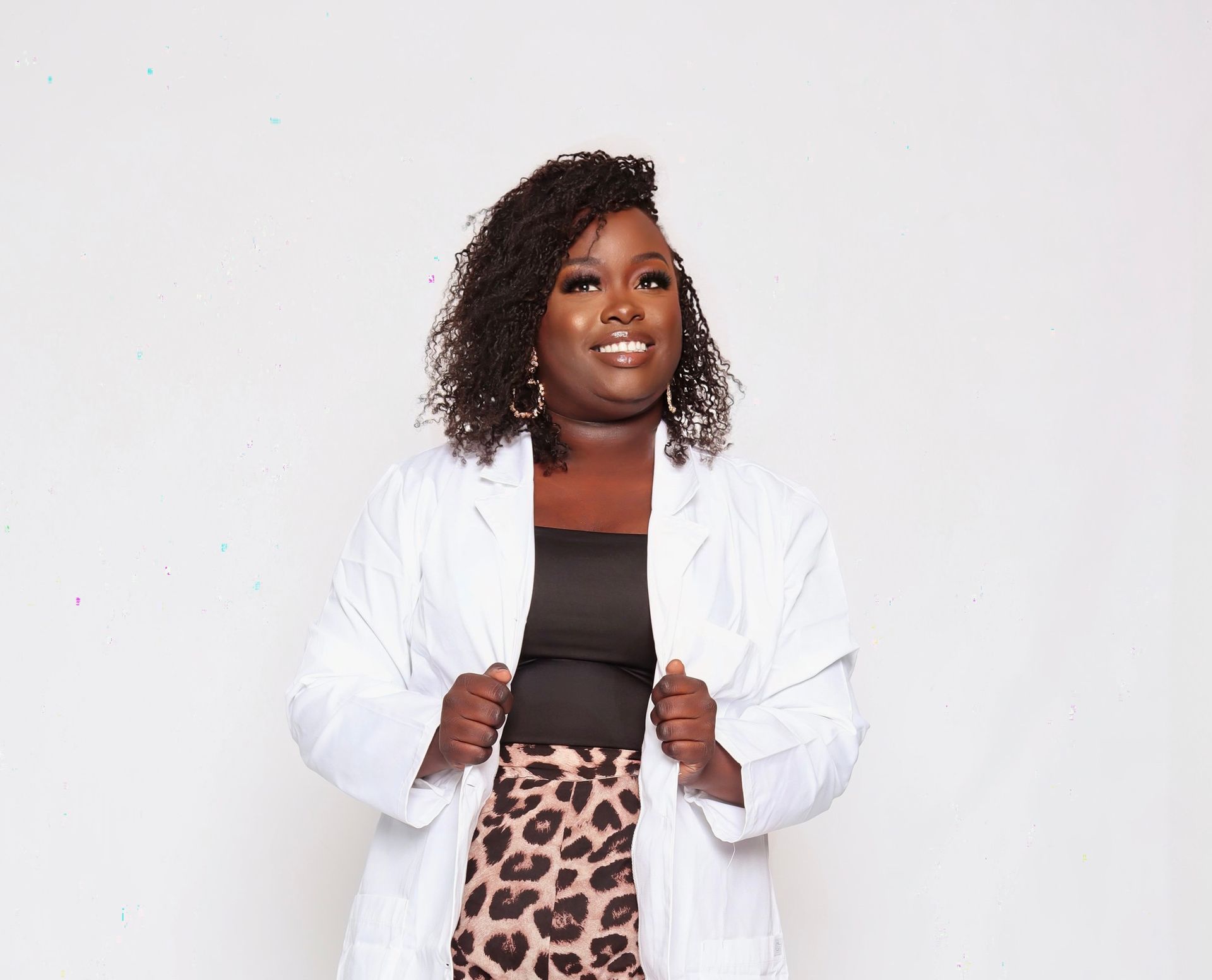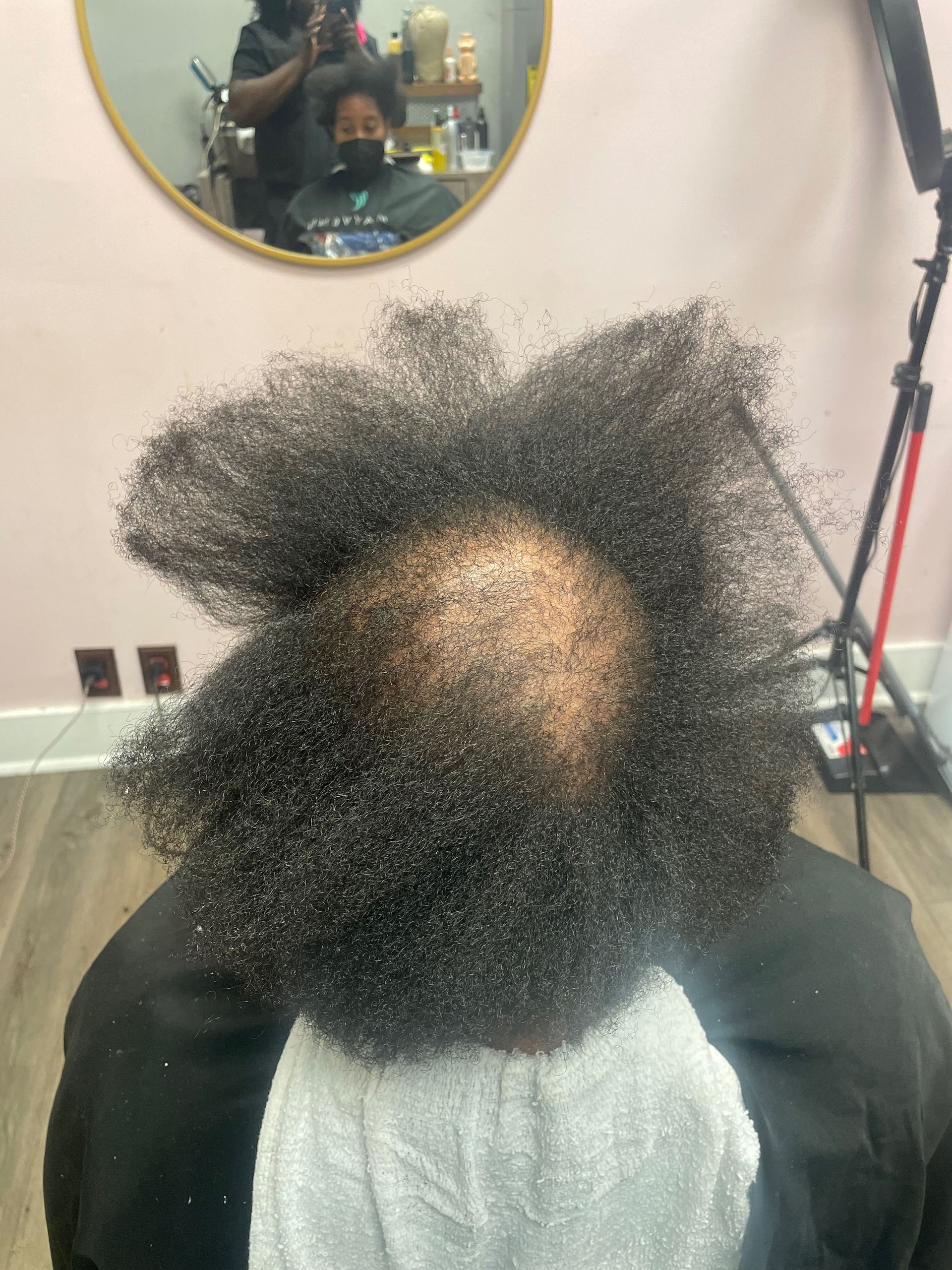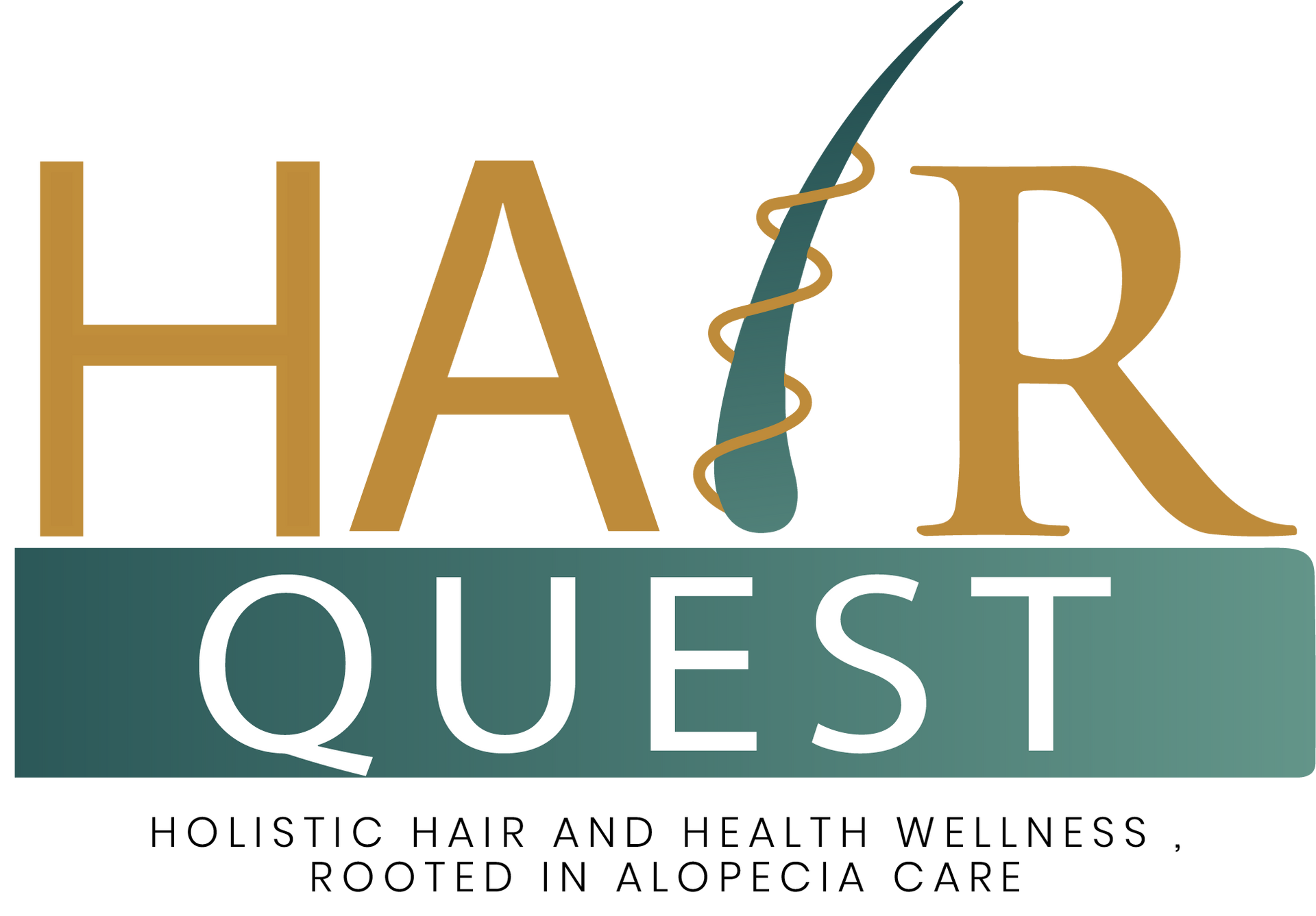When the Bloodwork Says “You’re Fine,
” But Your Hair Tells a Different Story

Why “Normal” Bloodwork Doesn’t Equal Health
Here’s the uncomfortable truth: bloodwork is designed to detect disease, not dysfunction.
When your doctor says your results are “within range,” it only means you don’t qualify for a medical diagnosis—not that your system is thriving. Those ranges are based on population averages, not optimal health.
So yes, you can have “normal” thyroid labs and still experience fatigue, cold hands, weight changes, and hair shedding.
You can have “fine” iron or ferritin levels and still not have enough stored iron to properly fuel follicle growth.
Your body doesn’t care about statistical averages—it’s trying to survive.
And your hair? It’s the first thing to wave the white flag when your system is struggling.
Why Doctors Miss What the Body Is Saying
Most doctors are trained to identify and manage disease, not to trace early imbalance. They’re scanning your labs to rule out illness, while a functional lens looks for patterns of stress before it becomes illness.
Let’s say your thyroid-stimulating hormone (TSH) comes back at 4.0.
That’s “normal” according to standard medicine.
But in functional physiology, that number already suggests your thyroid is slowing down—and
with it, your metabolism and your follicle energy production.
Or maybe your ferritin (iron storage) reads 25.
A doctor sees that and moves on.
A trichologist trained in physiology mapping knows that healthy hair needs a ferritin closer to
80–100 for consistent growth.
The difference isn’t in the data—it’s in the interpretation

When You Feel Off but Can’t Prove It
If you’ve ever said,
“I just don’t feel like myself, but they keep saying I’m fine,”
you’re not crazy—you’re just early.
Hair loss is often the first visible sign of an internal imbalance. Before a diagnosis shows up, your hair already knows: the system is overworked, nutrients are being misused, inflammation is rising, and hormones are fluctuating.
That’s why so many women get dismissed—they don’t fit neatly into a medical box yet. But the
body always reveals what the labs overlook.
Your hair is a mirror, not a mystery.
It reflects what your body can no longer hide
Why Your Hair Is Falling (Even When Labs Look “Good”)
Here’s what could be happening underneath the surface:
● Low ferritin and trace minerals: “Normal” by lab standards, but too low to sustain the
follicle’s oxygen and nutrient supply.
● Thyroid sluggishness: You’re producing hormone, but it’s not converting into the active
T3 your follicles depend on.
● Inflamed gut: Nutrients aren’t being absorbed, so your blood can’t deliver what your hair
needs.
● Stressed adrenals: Chronic stress raises cortisol, which shifts your hormone balance
and starves your scalp of circulation.
● Congested liver: Hormones and toxins can’t clear efficiently, leading to oily, inflamed, or
slow-growing hair.
Each of these imbalances can exist long before a doctor finds anything “wrong.”
That’s where functional trichology changes the game.
Why You Should Trust a Trichologist Without a Medical License
Let’s be honest—you might be wondering:
“How can someone who isn’t a doctor help me understand my body?”
Here’s the difference:
A trichologist doesn’t diagnose or prescribe.
We decode.
We bridge the space between what your doctor measures and what your body is actually
experiencing.
Doctors ask, “What disease does she have?”
Trichologists ask, “What system is burdened, and why?”
Our work is rooted in physiology mapping—connecting your internal stress patterns, nutrient
levels, and lifestyle habits with how they manifest in your hair and scalp.
Where the medical world sees symptoms, we see systems.
We track how the gut, liver, thyroid, adrenals, and immune responses communicate—or misfire—and how that directly affects follicle energy and scalp ecology. You don’t need another pill.
You need someone who understands how the body creates hair in the first place—and what it
takes to restore that process naturally.
Because “Fine” Isn’t the Goal You weren’t made to settle for fine.
You were made to feel radiant, energized, and confident in the reflection staring back at you. If your labs say you’re normal, but your body feels drained and your hair keeps shedding, it’s not your imagination—it’s your invitation.
Your body is whispering that something deeper needs attention. You can’t override that with willpower, or cover it with wigs and serums. You have to decode it. And that’s what I do.
I help women like you finally understand why their hair is falling, what their body is trying to say, and how to restore it—inside and out.
What Working with a Hair Recovery Strategist Looks Like
When you step into a holistic hair recovery process, you’re not just treating hair—you’re rebuilding the ecosystem that grows it.
Here’s how I approach it:
1. System Mapping
We look at your symptoms, energy, sleep, digestion, stress, and hormones as a
network. This gives us a map of which systems are most burdened.
2. Lab Interpretation (Functional Lens)
I review your existing labs—not to replace your doctor, but to see what may have been
overlooked. I interpret values through optimal ranges for hair and cellular health, not just
disease prevention.
3. Root-Cause Strategy Plan
We build a step-by-step plan to balance digestion, replenish minerals, restore
circulation, and calm inflammation so your follicles can finally rebuild and regrow.
4. Topical + Internal Synergy
We pair scalp therapies with internal recovery work to reset your scalp’s ecosystem and
your body’s communication loop.
It’s not about quick fixes or miracle products.
It’s about rebuilding your system so your hair has what it needs to thrive again.
Book your Hair Recovery session today
Let's uncover what phase you’re in
If this message hit home, it’s time to stop guessing and start mapping.
Here’s how you can begin:
Book a Hair Recovery Strategy Call — a short, focused session where we review your symptoms, lifestyle, and goals to determine your next best step toward recovery.
Move into a Holistic Hair Recovery Consultation — a deeper, personalized experience where we review your labs, identify your dominant system of burden, and
design a targeted recovery plan to help your hair—and your health—rebuild from the inside out.
You don’t have to prove that something’s wrong.
You already know it is. Now it’s time to do something about it.





